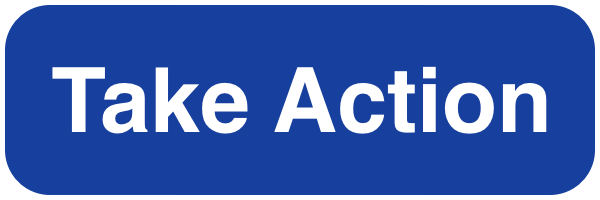Break the Cycle of Poverty for SSI Recipients
For millions of low-income people with disabilities and older adults, Supplemental Security Income (SSI) is a vital source of income that pays for rent, food, transportation, and other living expenses. However, extremely low asset limits prevent low-income people with disabilities and older adults from working, saving, and getting married. The SSI Savings Penalty Elimination Act would increase the SSI asset limits from $2,000 to $10,000 for unmarried individuals and eliminate the marriage penalty by allowing two SSI recipients to get married and have up to $20,000 in assets as a couple. The bill would also require asset limits to be adjusted yearly to keep up with the cost of living.
Take action by urging Congress to reintroduce and pass the SSI Savings Penalty Elimination Act!

Protect Social Security
The Social Security Administration (SSA) administers crucial programs, including Social Security Disability Insurance (SSDI) and Supplemental Security Income (SSI), which are lifelines for many individuals with disabilities. But the SSA is facing significant challenges due to proposed budget cuts and workforce reductions. These cuts could lead to loss of benefits, increased wait times, reduced access to services, and a negative impact on quality of life for disabled people across America.
Take action by urging Congress to protect Social Security and oppose any legislation that would cut funding or reduce the workforce of the SSA.

Take Action Against Texas v. Kennedy (formerly Texas v. Becerra)
Texas and 16 other states are suing to undo important updates made in 2024 to Section 504 of the Rehabilitation Act—a key law that protects people with disabilities from discrimination, especially in health care and human services. When the case was first filed, these states asked the court to strike down Section 504 entirely and declare it unconstitutional. Thanks to strong pushback from the disability community, that extreme claim was withdrawn. But the case is still moving forward—and it’s still dangerous. If the states win, they could roll back recent Section 504 updates that clarify and strengthen protections in health care, housing, community living, and family rights. This would make it easier for discrimination to occur and harder for disabled people to access the services and supports they need to thrive.
Take action by calling and/or emailing your state’s Attorney General and urging them to publicly oppose Texas v. Kennedy.

Protect the U.S. Department of Education
The U.S. Department of Education (ED) is at risk of elimination due to H.R. 899, a bill introduced in Congress, and an Executive Order. If the Department is eliminated, state and local school districts would lose billions in federal funding. The elimination of the Department of Education would be catastrophic for the 15% of students who receive special education services. Without the department’s oversight and funding, students with disabilities would lose critical services, civil rights protections, and access to a quality education.
Take action by urging Congress to oppose H.R. 899 and any legislation aimed at eliminating the Department of Education.

Expand Job Opportunities for People with Disabilities
The Workforce Innovation and Opportunity Act (WIOA) provides essential employment and training services that help people with disabilities to gain skills, secure jobs, and achieve independence in the workforce. However, WIOA expired in 2020 and continues to be funded through temporary extensions. Reauthorizing WIOA is crucial for strengthening competitive integrated employment, enhancing vocational rehabilitation services, and expanding workforce development programs to better support people with disabilities.
Take action by urging Congress to reauthorize WIOA which will enhance employment opportunities for people with disabilities!

Eliminate Subminimum Wages for Persons with Disabilities
For thousands of Americans with disabilities, the outdated practice of subminimum wages under Section 14(c) of the Fair Labor Standards Act remains a barrier to economic independence. The Transformation to Competitive Integrated Employment Act (TCIEA) would permanently phase out subminimum wages and provide resources to support employers and states in transitioning to competitive, integrated employment models. By passing TCIEA, Congress would ensure that all individuals with disabilities have the opportunity to work in inclusive settings for fair wages.
Read more about subminimum wages in our article: Expanding Fair Employment for Persons with Disabilities
Take action to help eliminate subminimum wages and promote fair employment opportunities for workers with disabilities!

Take Action So Elections Are Accessible To Everyone
Despite federal laws requiring accessible voting places and procedures, barriers persist for disabled people and older adults that prevent eligible voters from registering to vote and casting their ballot. Many older Americans and people with disabilities find it difficult to secure accessible and reliable transportation to polling places. It can be challenging, if not impossible, for disabled voters to wait in long lines to cast their ballot. And many disabled voters face communication barriers with election officials and poll workers. The Accessible Voting Act (AVA) would help close gaps in accessibility for voters with disabilities, providing guidance and resources so that accessible voting becomes a standard for everyone.
Take action today by urging Congress to reintroduce and pass the AVA, which will make elections more accessible for disabled voters!

Help Ensure That Streaming Services, Video Conferencing, and Emergency Services are Accessible
Since Congress last passed accessibility standards for communications technology in 2010, entirely new categories of technology have been developed, such as video conferencing and video streaming services. Americans now depend on access to these technologies in order to find and retain employment, to access emergency services, and to enjoy their leisure time. The Communications, Video, and Technology Accessibility Act (CVTA) would bring telecommunications accessibility standards up to date with current advances in technology.
Take action today by urging Congress to reintroduce and pass the CVTA, which will help those with disabilities access the latest technologies!






